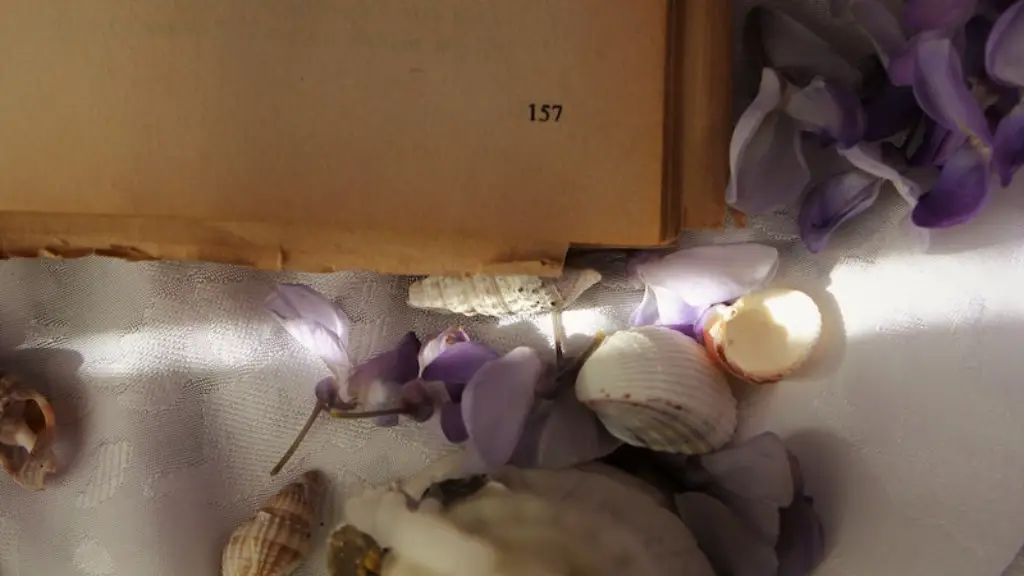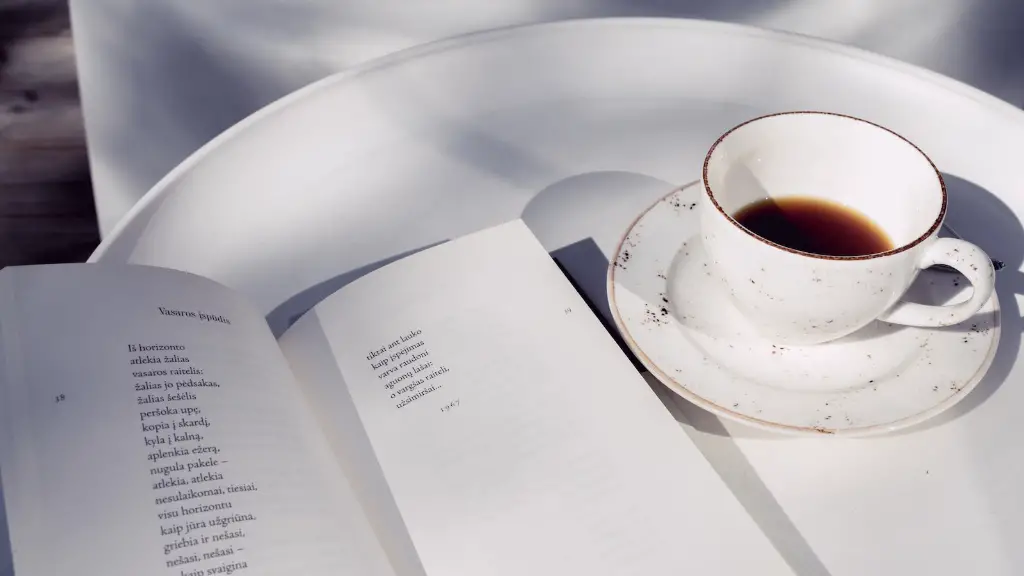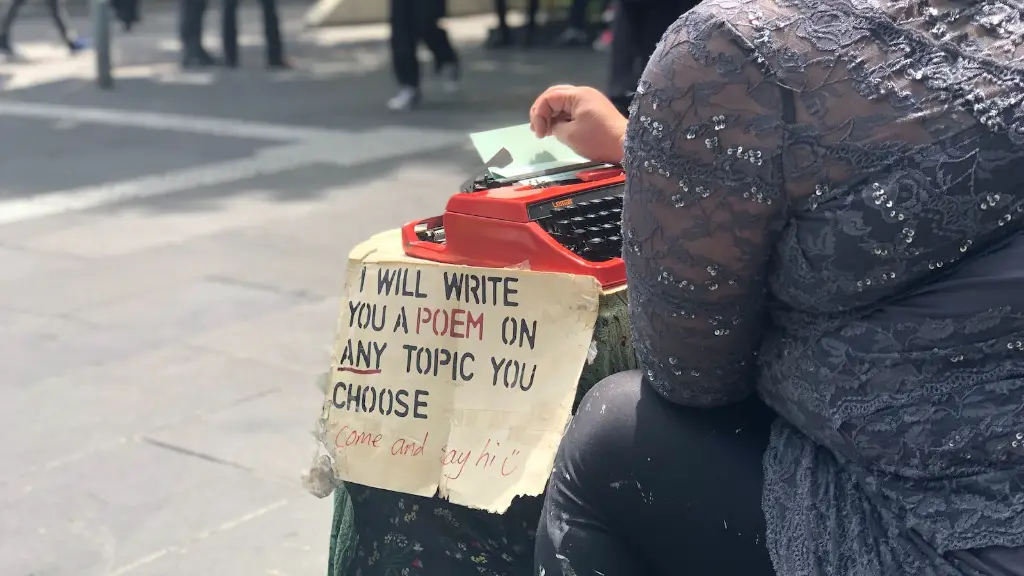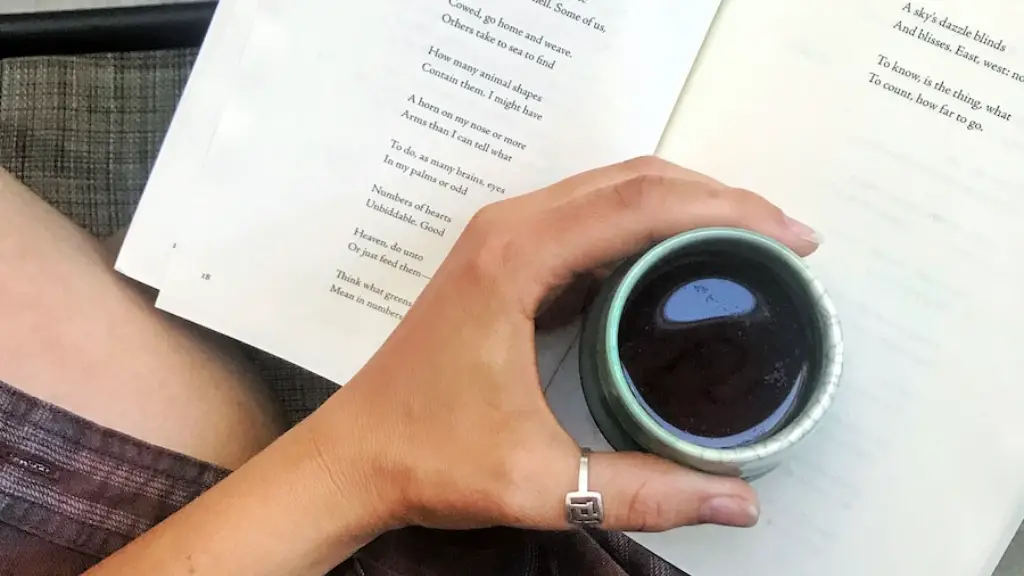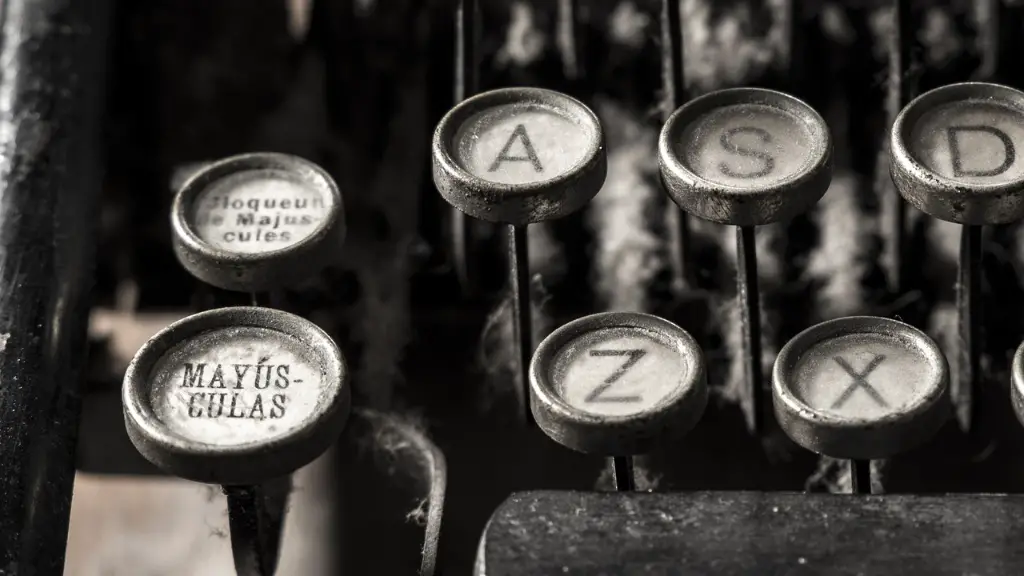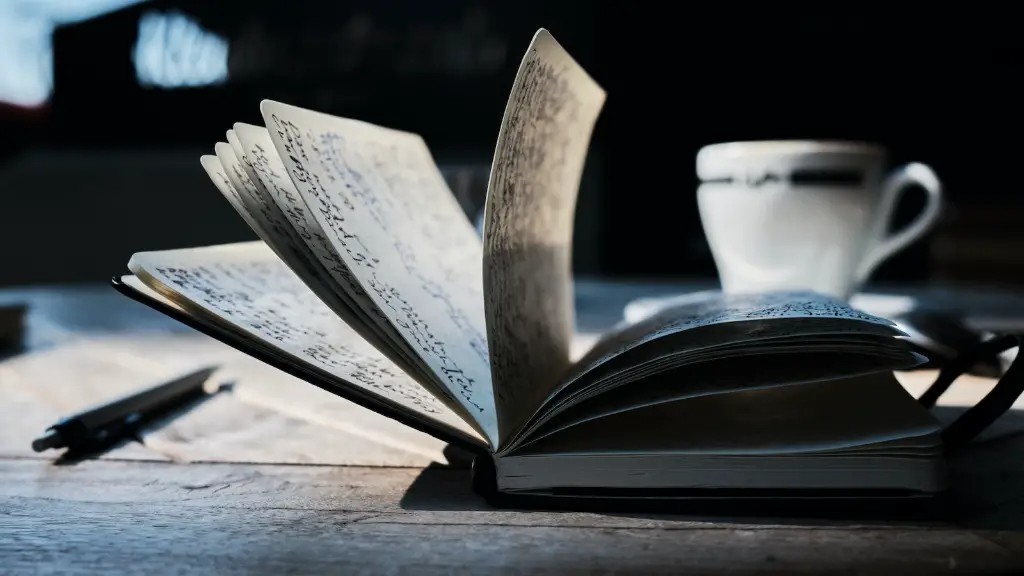Poetry is an art form with a long literary tradition. It involves the use of poetic devices and form to express human experience and emotions through language. The definition of poetry varies depending on context or the type of poetry in question. In literature, poetry is commonly seen as a genre of literature in which language is used to create or evoke a certain emotion or feeling. This is done through a variety of techniques, such as sound, imagery, rhymes, similes, metaphors, and alliteration. Poetry may also be seen as a way to explore and express deeper concepts, ideas, and universal truths.
Many people are familiar with the works of the world’s great poets like William Wordsworth, Alexander Pushkin, Robert Frost, Ezra Pound, and T.S. Eliot. These poets used language in a way that was evocative, heartbreaking and thought-provoking. In poetry, the writer is able to craft a piece that speaks to a variety of people and interests. Writers can choose to express themselves without the constraints of traditional prose, which tends to be more formal and structured in its approach. By using poetic devices such as rhythm, the poet is able to create an atmosphere and context that sets the perfect canvas for their ideas.
One of the great things about poetry is its ability to be interpreted in multiple ways. Each reader can bring their own personal experiences and interpretations to a poem, and find something meaningful in it. A single poem can mean something completely different to two different people. This kind of flexibility is one of the biggest advantages of writing in the poetic form, as it allows the reader to come to their own conclusions about what the poem is saying.
In literature, poetry has the capacity to explore complex ideas, topics and emotions in a way that prose cannot accomplish. Poetry is all about playing with words, and the writer can compose a piece that is meaningful, evocative and even challenging. Poetry can be used to explore anything from deep and personal emotions to societal and political issues. It can be used to tell stories, ask questions, and communicate subtle and not so subtle messages.
Poetry is also great for expressing complex and nuanced ideas in a concise manner. The language can be concise yet powerful, allowing the reader to read quickly and comprehend the piece upon initial reading. This can be a great way for authors to communicate with their readers, as it allows them to convey complex thoughts without having to use lengthy explanations.
Why Poetry Matters?
Poetry has been around for millennia and has been used as a way to explore the human condition and capture the beauty of the world around us. It allows people to express their thoughts and feelings in a way that is direct, meaningful and powerful. Great poets have left behind timeless works that can be read and enjoyed for generations, and new poets continue to craft and share works of great beauty and insight. Poetry can also be used to express political, social and philosophical truths, as well as to bring attention to important issues in our society.
Poetry provides a unique way to explore and reflect on our innermost thoughts and feelings, and to find beauty in the everyday. Poetry can be a platform for self-expression, allowing writers to share their stories and experiences with the world. It can be thought-provoking and inspiring, while still providing the reader with an enjoyable experience. By reading and writing poetry, we can be reminded of the beauty of the world around us, and the importance of using our words to capture and express our thoughts and feelings.
How Can One Write Poetry?
Writing poetry does not have to be difficult or intimidating. For those who are interested in trying their hand at writing poetry, there are a few essential tips to help them get started. First, it is important to identify what kind of poetry one wants to write. Some popular poetry types include sonnets, ballads, haiku, and free verse. Once one knows what type of poetry they want to write, they should create a list of topics they want to explore. This can include anything from feelings, emotions, relationships, observations, and social issues.
After deciding on a few topics, it is time to begin writing. This is often the most difficult step, as it can be hard to put one’s thoughts and feelings into words. For those who are just beginning, it can be helpful to start with short exercises that focus on a single topic. Alternately, one can begin with a few words, such as a noun or verb, and see where it takes them. Writing in a stream of consciousness can be helpful for those who are just starting out and can be a great way to come up with ideas and explore different topics.
It is also important to remember that there are no rules when it comes to writing poetry. While there are some general guidelines, there is plenty of room for creativity. The objective of a poem is to create a piece that speaks to the reader and conveys a particular emotion or experience. Poetry has the power to bring beauty, emotion and thoughtfulness to any piece of literature, it just takes some time and effort.
What Are the Benefits of Reading Poetry?
Reading poetry is a great way to stay connected to the beauty of language and can be beneficial for improving one’s writing. Poetry can be enjoyed on both an intellectual and emotional level. The unique language and structure can be a great way to learn new words, ideas, and concepts. It can also be a source of inspiration and give insight into the human experience. Through reading poetry, one can connect to a wider range of emotions and be moved in ways that they may not have expected.
In addition to being enjoyable, reading poetry can also help to improve one’s writing. By studying poetic devices such as metaphors, similes and personification, one can gain a better understanding of language and improve their own writing. Furthermore, reading a variety of poets can give insight into different points of view and provide new perspectives.
What Are Some Examples of Poetry?
The works of some of the world’s most famous poets are well known to many. Examples of these include William Wordsworth’s “The World Is Too Much with Us,” Alexander Pushkin’s “The Bronze Horseman,” Robert Frost’s “The Road Not Taken,” Ezra Pound’s “In a Station of the Metro,” and T.S. Eliot’s “The Waste Land,” among many others. These poems are just a few examples of how poetry can be used to explore a wide range of topics in an evocative and meaningful way.
For those who are just starting out reading and writing poetry, there are a variety of online resources and print anthologies that can be consulted. There is also a great range of poetry blogs and websites dedicated to showcasing more contemporary authors and poets. By taking some time to explore the works of different poets, one can gain insight into the unique beauty and expressiveness of the poetic form.
How Can One Appreciate Poetry?
In order to truly appreciate poetry, it is important to read it with an open mind and be willing to explore its various interpretations. Learning how to recognize and identify poetic devices such as metaphor, simile, and symbolism can be a great help in understanding a poem. It is also beneficial to read a poem several times, as it can help to gain a better understanding of the words and the context in which they are used. Additionally, keeping a journal and jotting down one’s thoughts and reflections on a poem can be a great way to appreciate a work of poetry.
Finally, it is important to remember that poetry is meant to be enjoyed and explored. There is no wrong way to approach a poem, and there is no single interpretation that is necessarily correct. Each reader can bring their own perspective and interpretation to a poem, and in doing so, can find something beautiful and meaningful. Poetry is an art form that continues to have an impact on readers, and each reader can discover something unique and special if they are willing to put in the time and effort to explore and appreciate it.
What Is the Role of Poetry in the Modern World?
Given the ever-changing nature of the world, the role of poetry has evolved over time. In today’s society, poetry serves a variety of purposes and is used to express a diverse range of ideas and emotions. One of the biggest roles that poetry plays is its ability to provide a platform for self-expression. Poets can express their thoughts and feelings in a direct, meaningful and powerful way, helping to bring attention to the importance of language and to inspire others to think more deeply about their emotions and experiences. Additionally, poetry continues to be a powerful medium for addressing social and political issues, and providing insight into universal truths.
In the modern world, poetry is also an important part of popular culture and can be found in a variety of mediums. Poetry can be found in music, painting, sculpture, literature, and movies. It is also increasingly being used as a way to engage people in important conversations, as it can be both educational and entertaining. The use of poetry as a form of communication and expression continues to be an important part of the modern world.
What Are the Different Types of Poetry?
Poetry has a long and varied history, and there are a wide range of different types of poetry. Some of the most popular forms of poetry include sonnets, haiku, free verse, and dramatic monologue. Each of these forms has its own unique characteristics and conventions, and can be used to explore different ideas and topics in a variety of ways. The important thing to remember about poetry is that there is no single correct way to write it, and the use of the poetic form can be used to better express a writer’s true voice and ideas.
Whatever form of poetry is used, it is important to remember that it is an art form, and as such should be approached with curiosity, creativity, and enthusiasm. By exploring different types of poetry, one can better understand its potential and find new and exciting ways to explore and express their thoughts, feelings, and experiences.
